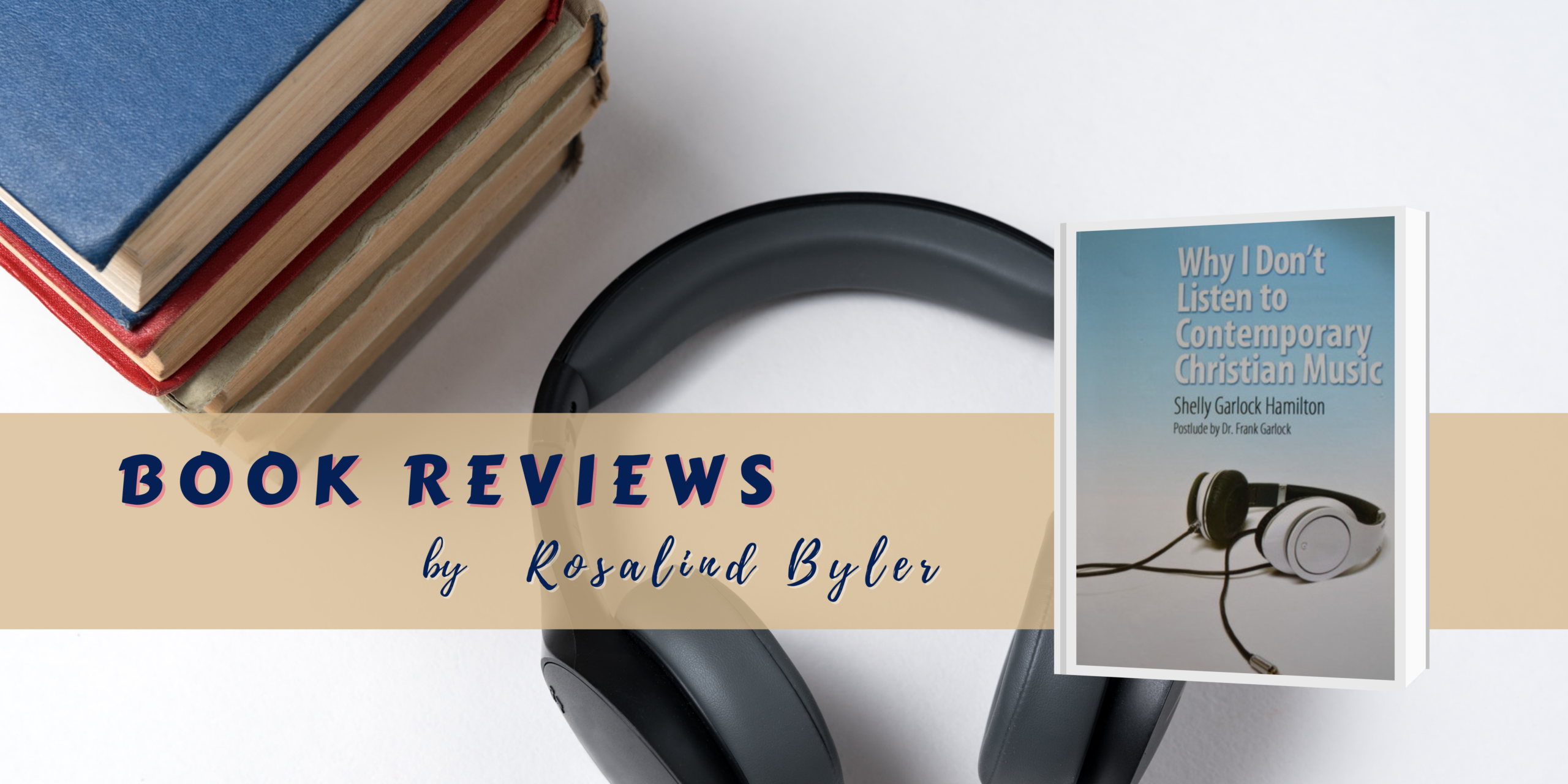Book Reviews
Why I Don’t Listen to Contemporary Christian Music, by Shelly Garlock Hamilton

The question of what music is appropriate for Christians has become one of heated controversy in the last fifty years. Few Christians have difficulty categorizing the music of a performer who angrily chants or wails nearly unintelligible lyrics to the accompaniment of primitive poundings and thumpings. Most of us will readily acknowledge the value of a hymn written with theological carefulness and matched to an appropriate melody, sung enthusiastically by a congregation who have prepared themselves to worship God.
However, all sorts of possible combinations lie between these two extremes. What if the words of the first performer express adoration to God? What if we attach a new melody --one originally composed to express feelings of hatred, rebellion and despair--to the theologically correct hymn? How do we know our reluctance to accept certain types of music is not just due to our lack of familiarity with them? Was biblical correctness in music something achieved only in the past, to which we must cling while rejecting anything under (choose your number) years old?
“Contemporary Christian music,” or CCM, has come to mean not just recent musical compositions by Christians, but a whole genre of music that mimics whatever trends are fashionable in the popular music of our times (”contemporary”) while sporting some aspect of truth (“Christian”). If you are looking for an easy-to-read publication that will acquaint you with some of the issues surrounding the whole question of CCM, this may be the one for you.
Author Hamilton does not speak from an intimate personal acquaintance with the problem, having grown up in a home that was musically conservative and vigilant. (Her father, Dr. Frank Garlock, researched rock music in the sixties and traveled widely giving seminars and preaching sermons about its dangers.) Hamilton and her husband Ron are the leaders of Majesty Music , a Christian music company. An experienced pianist and composer, she understands the mechanics of music. As the mother of five children who experience pressure toward CCM from their friends, she wanted to provide a resource for other concerned parents and church leaders.
The book is small and short; as Hamilton herself says, it is “not an all-inclusive study.” She begins by defining CCM and describing how it got its name (older readers may remember the term “Christian rock”) before tackling the question “Is Music Neutral?” Hamilton categorizes sensual music as having at least one of two characteristics: the rock beat and the “pop” singing style. She describes these. Two longer chapters follow: one on biblical teaching about music and one about the “fruit and association” of rock music (stories of people adversely affected by rock and/or CCM).
Where should the music line be drawn? Hamilton does not give detailed criteria but connects perspectives on music to our outlook on other matters: dress, for one. Hamilton expresses caution about attempting to “redeem” various questionable media and use them for the glory of God. She closes with a chapter on the power of music in the church, suggestions for healthy alternatives to CCM, and a definition for conservatism that skillfully distances it from accusations of “fuddy-duddy” and “stick-in-the-mud.” Frank Garlock adds a postlude giving a brief rationale for hymnbooks, a “plug” for Majesty Music, and a short sermon on general worldliness.
I must confess I found the book slightly objectionable. It seemed more likely to comfort the hearts of the choir than to awaken the audience dozing over their hymnbooks. Its very brevity precludes a thorough and careful look at any of the subjects it addresses. Hamilton also quotes extensively from other writers, letting them prove her points. If you are currently engaged in an in-depth study of this subject, you might use this book to help chart your course rather than as a resource. However, if you do not find yourself equipped for such a study, the book gives a good introduction and overview.